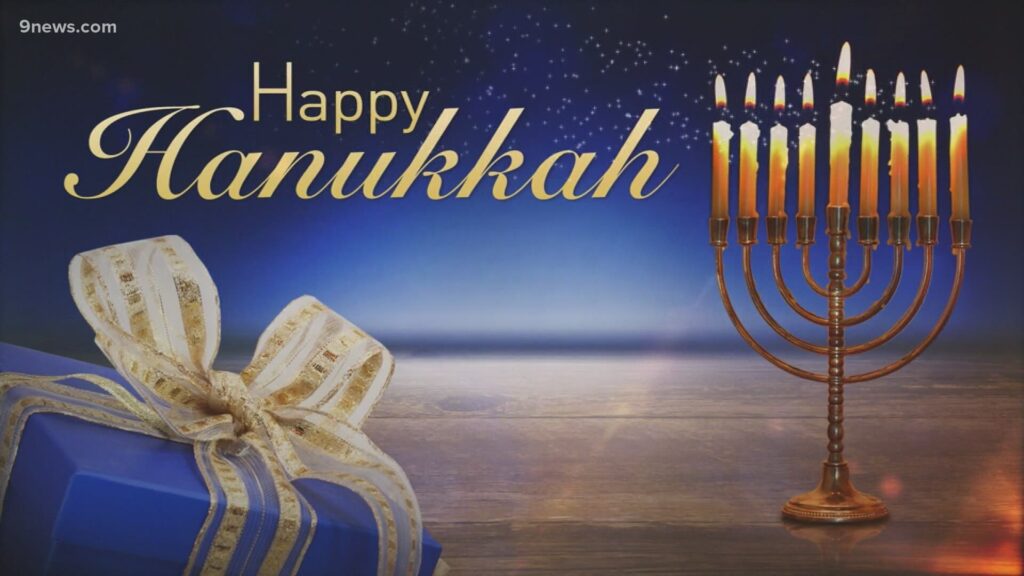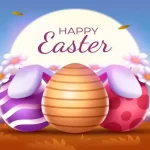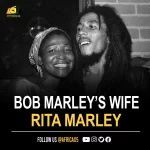When Does Hanukkah Start?
Introduction
Hanukkah, also known as the Festival of Lights, is a Jewish holiday that commemorates the rededication of the Second Temple in Jerusalem in the 2nd century BCE. It is celebrated for eight nights and days, starting on the 25th day of Kislev according to the Hebrew calendar. The exact date varies each year on the Gregorian calendar, typically falling in November or December. In 2024, Hanukkah will begin at sundown on Wednesday, December 25th and end at sundown on Thursday, January 2nd.
The History of Hanukkah
The origins of Hanukkah date back to the 2nd century BCE, during the time of the Seleucid Empire. In 168 BCE, the Seleucid king Antiochus IV Epiphanes outlawed Jewish religious practices and defiled the Jewish Temple in Jerusalem by installing an altar to Zeus. This sparked a revolt led by the Maccabees, a small band of Jewish rebels. After three years of fighting, the Maccabees succeeded in reclaiming the Temple and restoring Jewish worship.According to the Talmud, a central text of Rabbinic Judaism, when the Maccabees rededicated the Temple, they found only enough consecrated olive oil to keep the menorah’s candles burning for a single day. Yet, the candles miraculously burned for eight nights. In commemoration, the sages instituted an eight-day festival to be observed with the lighting of candles and other rituals.
Hanukkah Traditions
The primary observance of Hanukkah is the lighting of a special candelabrum known as a hanukkiah, which holds nine candles. One candle is lit on the first night, two on the second, and so on, until all eight candles are lit on the final night. The ninth candle, called the shamash (“helper”), is used to light the other candles.Other Hanukkah traditions include:
- Eating foods cooked in oil, such as latkes (potato pancakes) and sufganiyot (jelly-filled doughnuts), to commemorate the miracle of the oil
- Playing dreidel, a gambling game played with a four-sided spinning top
- Giving gifts, especially to children
- Singing songs and reciting prayers
The Significance of Hanukkah
While Hanukkah is not one of the most important Jewish holidays, it has gained significance in modern times, particularly in the United States. The holiday’s themes of religious freedom, national identity, and the victory of the weak over the strong have resonated with Jews and non-Jews alike.In the US, Hanukkah has become more prominent due to its proximity to Christmas. Many Jews have embraced the gift-giving tradition of Christmas, and public menorah lightings have become more common, often placed alongside Christmas trees. This has led to a greater awareness and celebration of Hanukkah in American culture.
Table: Hanukkah Dates
| Year | Start Date | End Date |
|---|---|---|
| 2023 | December 7 | December 15 |
| 2024 | December 25 | January 2 |
| 2025 | December 14 | December 22 |
| 2026 | December 4 | December 12 |
Source: Wikipedia
FAQs
Q: When does Hanukkah start in 2024?
A: In 2024, Hanukkah will begin at sundown on Wednesday, December 25th and end at sundown on Thursday, January 2nd.
Q: Why does the date of Hanukkah change each year?
A: Hanukkah is celebrated on the 25th day of Kislev in the Hebrew calendar, which is a lunar calendar. Since the Hebrew calendar does not align perfectly with the Gregorian calendar, which is based on the solar year, the date of Hanukkah varies from year to year on the Gregorian calendar, typically falling in November or December.
Q: How long does Hanukkah last?
A: Hanukkah is celebrated for eight nights and days, from the 25th of Kislev to the 2nd or 3rd of Tevet in the Hebrew calendar.
Q: What is the significance of the eight nights and days of Hanukkah?
A: The eight nights and days of Hanukkah commemorate the miracle of the oil. According to tradition, when the Maccabees rededicated the Temple in Jerusalem, they found only enough consecrated olive oil to keep the menorah’s candles burning for a single day. Yet, the candles miraculously burned for eight nights.
Q: What are the main traditions of Hanukkah?
A: The primary traditions of Hanukkah include lighting a hanukkiah (a special candelabrum with nine candles) for eight nights, eating foods cooked in oil such as latkes and sufganiyot, playing dreidel, giving gifts, and singing songs and reciting prayers.
Q: Why has Hanukkah become more prominent in the United States?
A: Hanukkah has gained more prominence in the US due to its proximity to Christmas. Many Jews have embraced the gift-giving tradition of Christmas, and public menorah lightings have become more common, often placed alongside Christmas trees. This has led to a greater awareness and celebration of Hanukkah in American culture.
Q: Is Hanukkah one of the most important Jewish holidays?
A: No, Hanukkah is not considered one of the most important Jewish holidays. It is a minor holiday compared to festivals like Passover and Yom Kippur. However, its themes of religious freedom, national identity, and the victory of the weak over the strong have resonated with Jews and non-Jews alike, leading to its increased prominence in modern times.
Q: How do Jews around the world celebrate Hanukkah?
A: While large-scale public menorah lightings have become more widespread, especially in the US, Hanukkah is mostly a time for families to come together in most parts of the world. Fried foods, to commemorate the miracle of the oil, feature heavily in family celebrations, including latkes and sufganiyot.
Q: What is the history behind the dreidel game played during Hanukkah?
A: The custom of playing with dreidels, or spinning tops, dates back to the Greek-Syrian rule over the Holy Land. Since learning the Torah at the time was outlawed, Jewish kids would pretend to play with a dreidel when they were really studying. The four-sided top has a Hebrew letter on each side, representing the phrase “Nes gadol hayah sham” (“A great miracle happened there”).
Q: How do public menorah lightings work?
A: Public menorah lightings are often held in prominent locations, such as city centers or in front of government buildings. The largest menorah is lit, with one candle added each night of Hanukkah. These events are accompanied by music, food, and sometimes carnivals or other festivities.
Q: Why is Hanukkah sometimes called the Festival of Lights?
A: Hanukkah is known as the Festival of Lights because of the miracle of the oil and the lighting of the hanukkiah. The eight nights of Hanukkah commemorate the eight nights the menorah burned in the rededicated Temple, even though there was only enough oil for one night.
Q: What is the significance of the shamash candle on the hanukkiah?
A: The shamash, or “helper” candle, is the ninth candle on the hanukkiah. It is used to light the other candles each night of Hanukkah. The shamash is positioned differently from the other candles, often higher or lower, to distinguish it from the eight Hanukkah candles.
Q: How do the traditions of Hanukkah differ between Orthodox and non-Orthodox Jews?
A: There are some differences in Hanukkah traditions between Orthodox and non-Orthodox Jews. For example, Orthodox Jews may light the hanukkiah after nightfall, while non-Orthodox Jews may light it earlier in the evening. The order of the blessings recited during the lighting may also differ slightly between the denominations.
Q: What is the connection between Hanukkah and the story of Joseph in the Torah?
A: The Torah portion read during Hanukkah is Miketz, which tells the story of Joseph’s dream and his enslavement in Egypt. While not directly related to the Hanukkah story, the Torah portion is read during the holiday because it takes place in the same month of Kislev.
Q: How has Hanukkah been portrayed in popular culture?
A: Hanukkah has made appearances in various forms of popular culture, particularly in the United States. The classic children’s song “Dreidel, Dreidel, Dreidel” has been featured in several episodes of South Park, and comedian Adam Sandler’s “The Hanukkah Song” became a national obsession when it was first performed on Saturday Night Live in 1994.Conclusion
Hanukkah is a significant Jewish holiday that commemorates the rededication of the Second Temple in Jerusalem and the miracle of the oil. While its date varies each year on the Gregorian calendar, Hanukkah is celebrated for eight nights and days, starting on the 25th of Kislev in the Hebrew calendar. The primary traditions of Hanukkah include lighting a hanukkiah, eating foods cooked in oil, playing dreidel, giving gifts, and singing songs and reciting prayers. Although not one of the most important Jewish holidays, Hanukkah has gained prominence in modern times, particularly in the United States, where it is often celebrated alongside Christmas.



